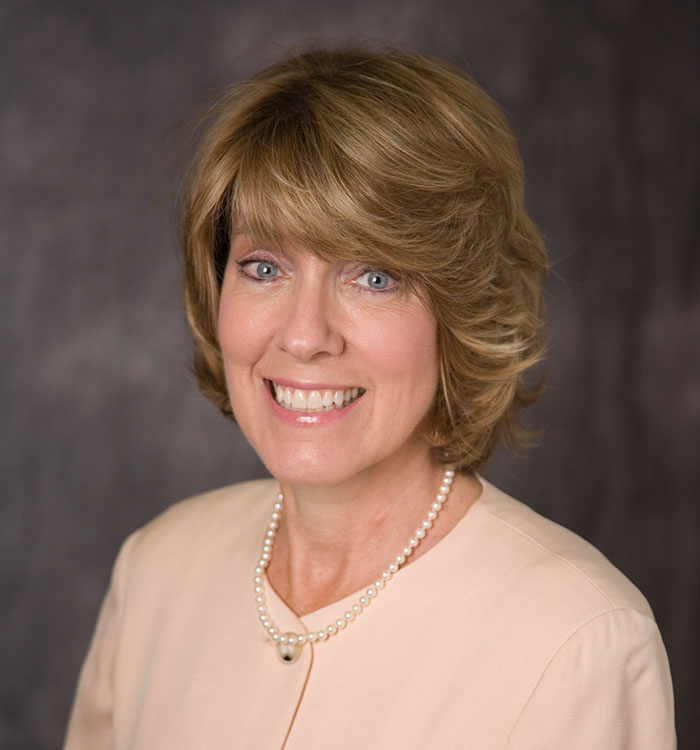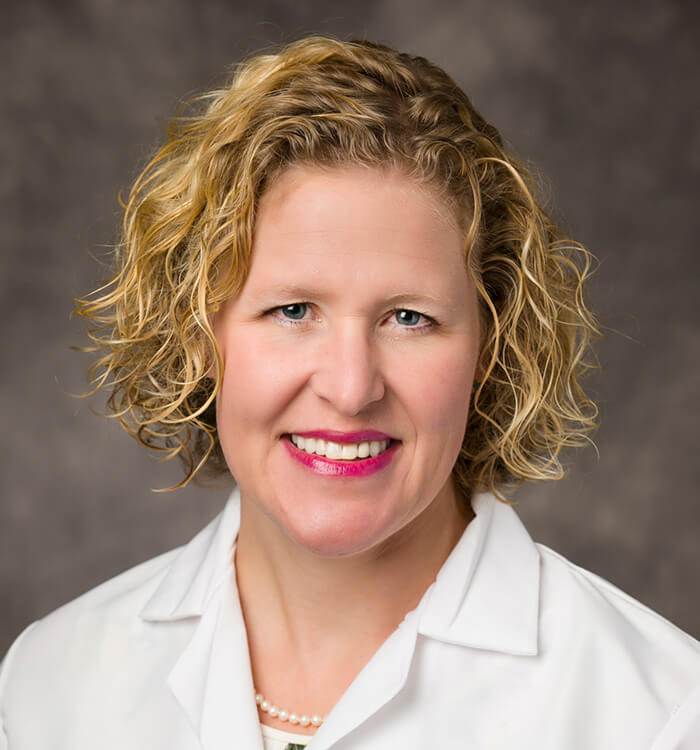Novel Cochlear Implant Trials Underway at University Hospitals
November 20, 2022
Advancements in cochlear implant technology are under investigation by researchers at University Hospital Cleveland Medical Center
Innovations in Ear, Nose & Throat | Fall 2022
By directing signals to the brain via auditory nerve stimulation, the devices are restoring hearing to individuals living with severe to profound sensorineural hearing loss. With appropriate training, patients learn to interpret the signals as sounds and experience marked improvement in communication skills. However, only a small percentage of candidates for cochlear implants currently receive them. Global efforts are underway to impact greater numbers of individuals who struggle to hear.
 Alejandro Rivas, MD
Alejandro Rivas, MD Gail Murray, PhD,CCC-A
Gail Murray, PhD,CCC-A Sarah Mowry, MD
Sarah Mowry, MD“The global penetrance for patients who could benefit from cochlear implants is just six percent, so it is imperative that we continue to expand the reach of this technology,” says Alejandro Rivas, MD, Division Chief of Otology and Neurotology, Director of the Cochlear Implant Center within University Hospitals Ear, Nose & Throat Institute.
Recognized as a Center of Excellence, the University Hospitals Cochlear Implant Center is currently enrolling patients in three novel investigational trials aimed at advancing cochlear implant capabilities. “The sponsors of these trials have selected University Hospitals to participate because we are a nationally recognized center for our high surgical volume, efficiency and quality outcomes,” says Dr. Rivas. Additionally, the center is pioneering cochlear implantation under local anesthesia for high-risk elderly patients in Ohio.
Cidex Steroid Eluting Electrode Study
A known risk of cochlear implantation is residual hearing loss. University Hospitals is the only health system in Ohio and one of 16 sites throughout the United States and Australia enrolling patients in the CIDEX trial, a randomized, double-masked investigation of the Dexamethasone-eluting electrode array implanted during cochlear surgery.
“The implanted electrode passively elutes the steroid Dexamethasone postoperatively to reduce inflammation that can contribute to hearing loss,” says Gail Murray, PhD, CCC-A, University Hospitals System Director for Audiology Services, Clinical Director of the Cochlear Implant Program. “I find this one of the most exciting trials I have been involved with—to offer an implant that not only helps an individual hear better but may also prevent hearing from worsening over time.” Dr. Rivas hopes to enroll 30 patients in the trial, which runs through the spring of 2024. “We have data to support that using an atraumatic surgical technique works very well on sparing residual hearing, and the clinical trial should demonstrate that,” says Dr. Rivas. “The advancement has the potential to benefit all cochlear implant patients because reducing inflammation improves overall outcomes, even on patients without residual hearing.”
Ci632 Residual Hearing Preservation Study
The Cochlear™ Nucleus® CI632 Slim Modiolar electrode has Food and Drug Administration (FDA) approval for patients with severe hearing loss. University Hospitals is enrolling patients under age 70 who still have significant low-frequency residual hearing in a clinical trial aimed at expanding indications for the CI632 electrode. “Through this trial, we hope to expand cochlear implant technology for patients with residual hearing,” says Dr. Rivas. Study outcomes could fill an unmet need related to speech understanding. “There is a gray zone of hearing aid users who are frustrated with communication,” says Dr. Murray. “For patients with high-frequency hearing loss, hearing aids may not amplify sounds clearly enough for word understanding. We find that the same-age population with cochlear implants score much better.” The study is ongoing through 2023.
Osia 2 Pediatric Expansion Study
The Cochlear™ Osia®2 System is a semi-implantable bone conduction device that has FDA approval for patients age 12 and up who have conductive or mixed hearing loss. University Hospitals is enrolling pediatric patients (ages 5-12) in the multi-center, open-label study examining the safety and effectiveness of the Osia 2 system in younger patients as a precursor to seeking FDA approval to expand its indications for use. “We really want to stimulate the auditory system early in life because it will have a greater positive effect on development and communication than if we wait until age 12,” says Dr. Murray.
Cochlear Implant Under Local Anesthesia
“We’re seeing rates of hearing loss and deafness grow in the elderly population,” says Dr. Rivas. “Very often, these individuals who could most benefit from cochlear implants have comorbidities that make general anesthesia a greater risk.” Restoring hearing improves language comprehension and reduces social isolation for older patients. Sarah Mowry, MD, a board-certified otolaryngologist, fellowship-trained neurotologist at University Hospitals, is pioneering cochlear implantation under local anesthesia for elderly patients who might otherwise be medically excluded from the procedure. “We regularly see patients in their 80s and 90s who want procedures to improve their hearing, without the need of general anesthesia and the relative long cognitive recovery associated with it” Dr. Mowry says. “This advancement is a fast, safe technique that is viable for this underserved patient population.”
For more information or to refer a patient for an investigational trial at the UH Cochlear Implant Center, contact Rachel Harbarger, RN, Patient Navigator, at Rachel.Harbarger@UHhospitals.org or call 216-844-5500.
Contributing Experts:
Alejandro Rivas, MD
Division Chief of Otology and Neurotology
Director of the Cochlear Implant Center
University Hospitals Ear, Nose & Throat Institute
Professor
Richard W. and Patricia R. Pogue Chair in Auditory Surgery and Hearing Sciences
Case Western Reserve University School of Medicine
Gail Murray, PhD, CCC-A
University Hospitals System Director, Audiology Services
Clinical Director of the Cochlear Implant Center
Associate Professor
Case Western Reserve University School of Medicine
Sarah Mowry, MD
University Hospitals Ear, Nose & Throat Institute
Associate Professor
Case Western Reserve University School of Medicine


